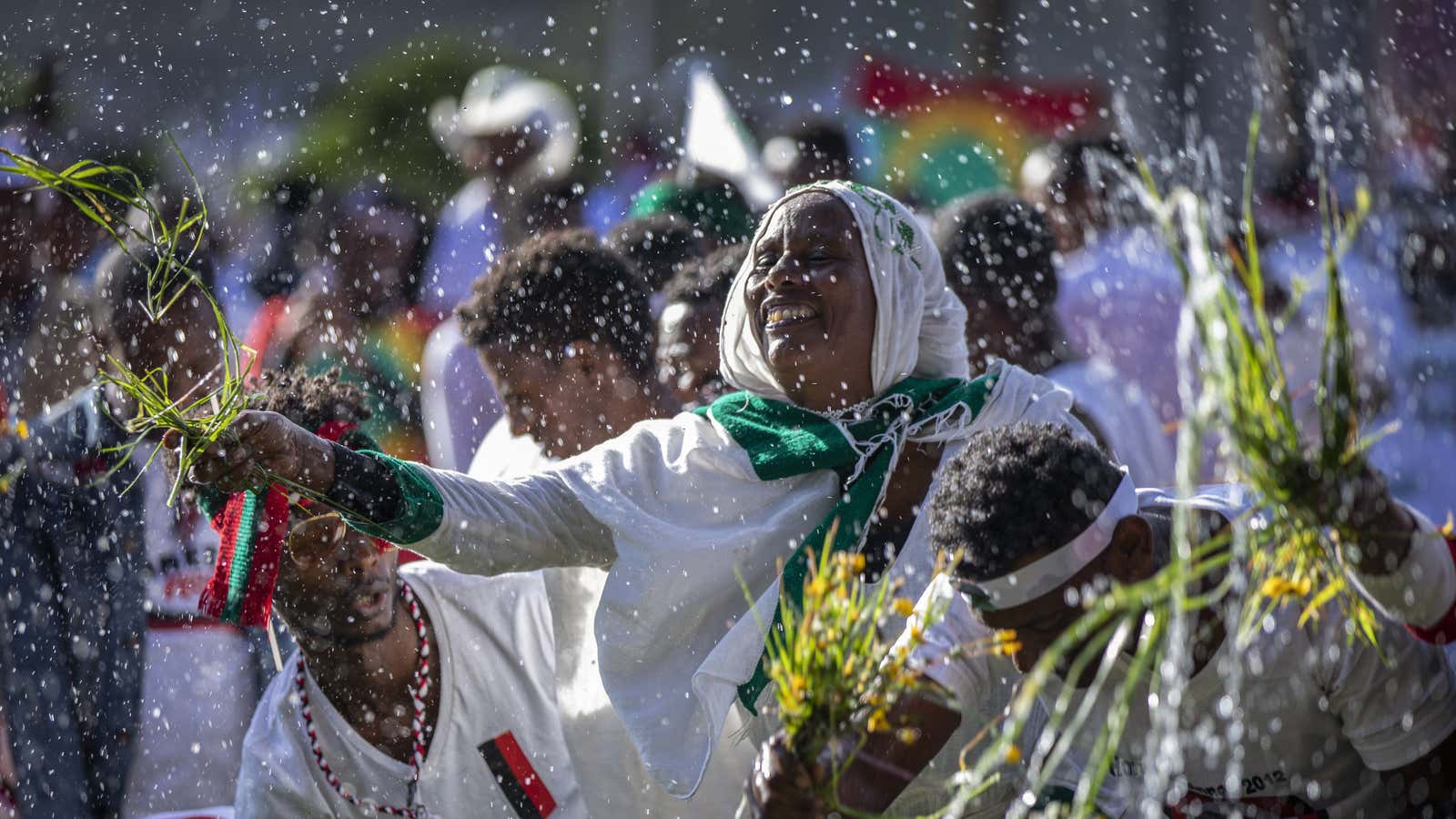After a 150-year absence, the annual thanksgiving festival of Ethiopia’s largest ethnic group returned to its capital this weekend.
Hundreds of thousands of Oromos descended on Addis Ababa to partake in the Irreecha festival, celebrating the end of the rainy months and welcoming the harvest season. The fete is considered the most important cultural event in the Oromo calendar, who make up over 34% of Ethiopia’s 100-million population. In the past, crowds gathered in their millions at Bishoftu town, located about 40 kilometers (25 miles) southeast of Addis Ababa in the Oromia region.
The celebration comes three years after dozens of people died following a stampede at a similar festival triggered by security forces’ use of tear gas and rubber bullets. At the time, the Horn of Africa nation was experiencing massive anti-government protests, led mostly by the Oromo and Amhara communities who were demanding land reform, full political participation, and an end to human rights abuses. Opposition and human rights groups said hundreds possibly died during the pandemonium after being trampled, falling into an open trench or drowning in a nearby lake.
The scenes in Addis Ababa this year were quite different from those of 2016. Crowds in colorful traditional garments danced in the streets and threw grass into pools of water as a symbol of prosperity and riches. The celebrations at Meskel Square in the capital also showcased how far the country has come in the past few years.
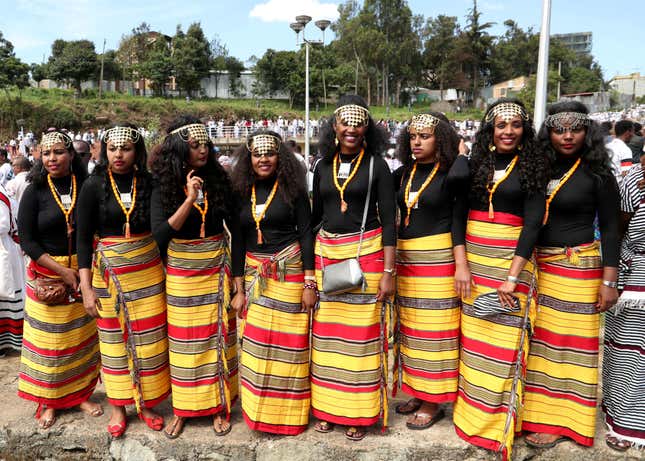
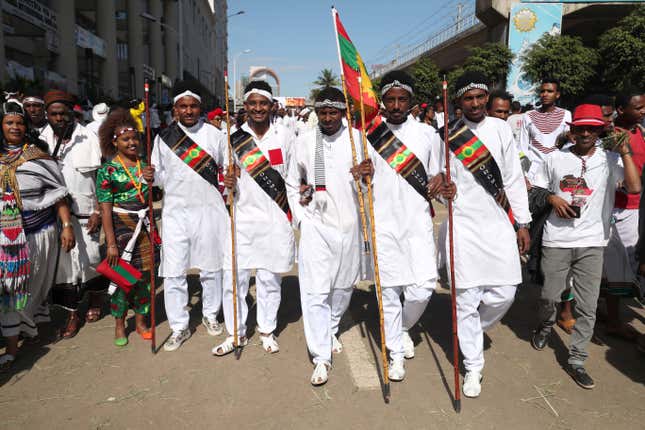
With prime minister Abiy Ahmed—himself an Oromo—at the helm, Ethiopia has embarked on an ambitious road to reform. Since coming to power in April 2018, Abiy has made peace with long-time regional rivals like Eritrea, released journalists, invited back exiled opposition groups, increased the place of women in power, and has opened up the economy for private investment.
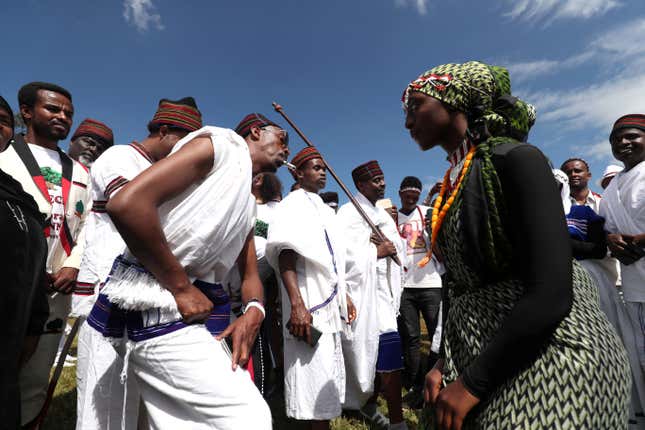
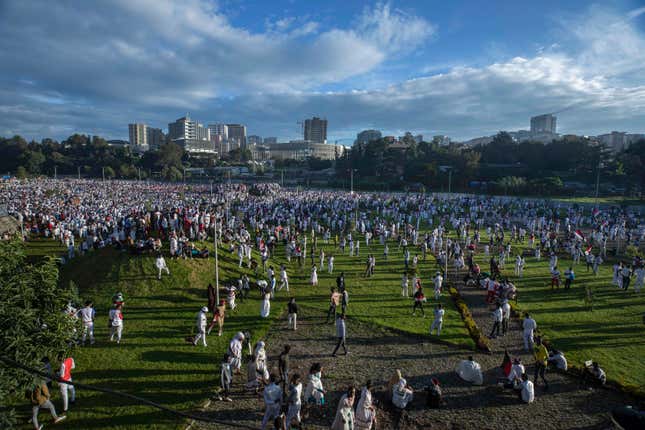
But ahead of crucial polls in 2020, Abiy’s nascent administration faces challenges related to ethnic federalism, land reform, equitable economic development, freedom of expression besides creating a national consensus. A coup attempt in June in the northern Amhara region and the killing of senior officials also cast doubt on whether Africa’s second-most-populous state could make the transition from a one-party state to a fully-fledged democracy.
Staying hopeful this weekend, state-affiliated Fana Broadcasting Corporate reported that Abiy said Irreecha was “a symbol of peace and unity.”
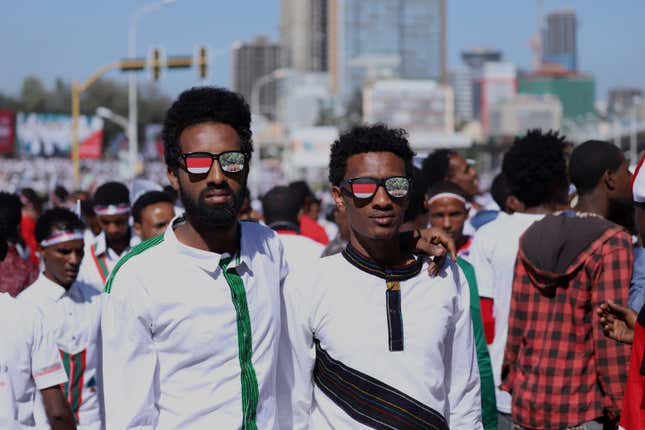
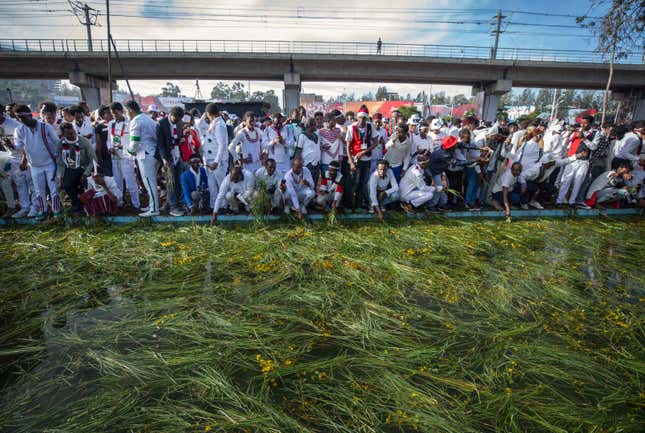
Sign up to the Quartz Africa Weekly Brief here for news and analysis on African business, tech and innovation in your inbox
